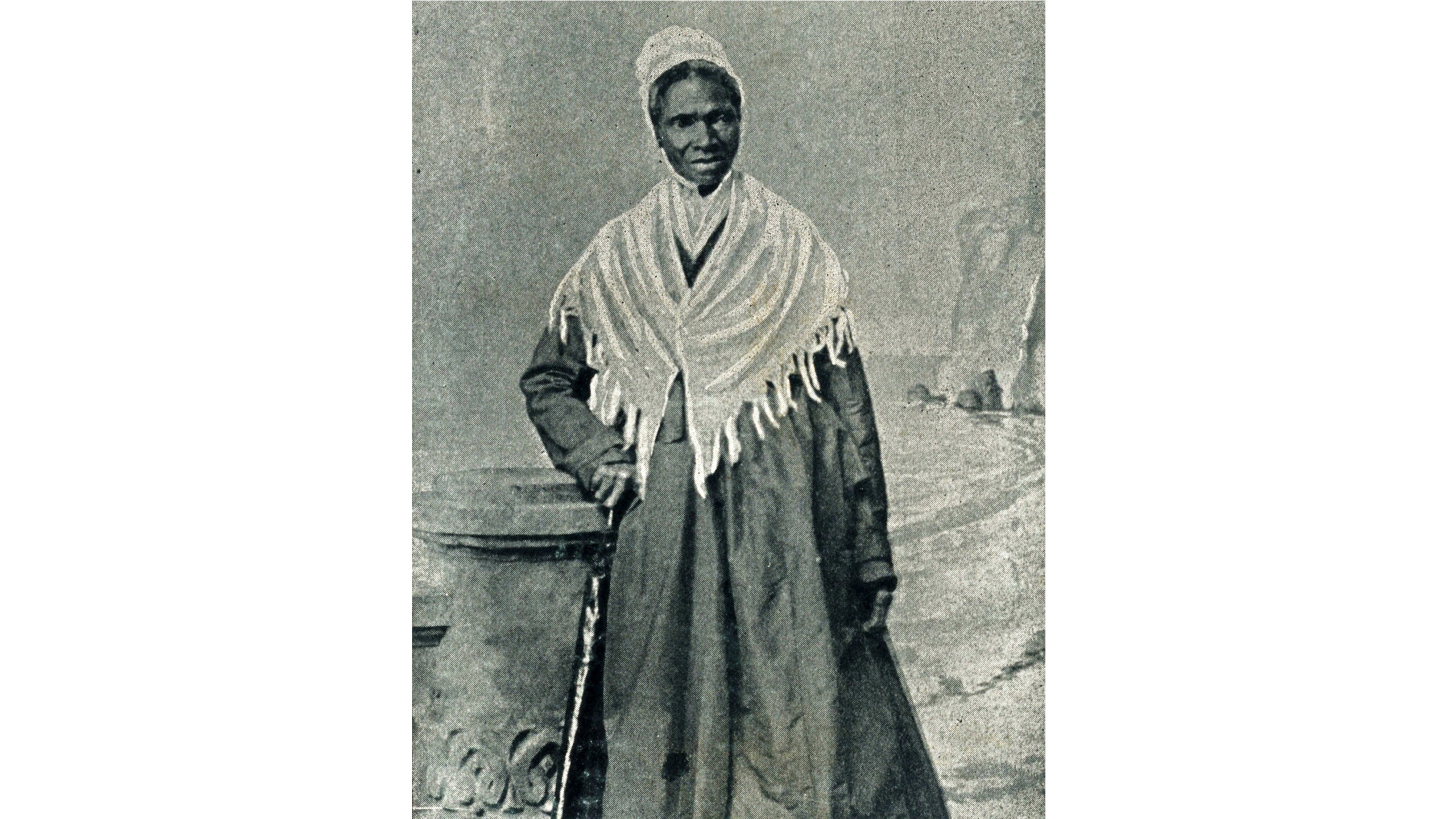In 2021, the Society is celebrating Black History Month every month, spending the year looking back at the impact of Black New Yorkers on the legal history of the state.
Sojourner Truth (1797-1883) was an African American abolitionist and women’s rights activist. She was born into slavery in upstate New York, and with her infant daughter escaped to freedom in 1826. New York began to legislate for abolition of slavery in 1799, adopting emancipation legislation on July 4, 1827. The law did not provide for a specific date of collective emancipation. Rather it legislated staggered dates of freedom based on age and gender on the theory that the work force should not be overburdened. Sojourner obtained her freedom on July 4, 1827.
Upon learning that her five-year-old son had been sold by his New York owner to an Alabama slave-holder, Sojourner commenced a lawsuit to recover him. She brought her action in the Ulster County Courthouse, and a plaque recognizing this suit sits on the courthouse grounds. She maintained that the sale of her son to a slave state violated the provisions of New York’s emancipation law (L. 1817, ch. 137) making it illegal to sell a New York slave out-of-state if such a sale denied the individual the benefits of the law.
Sojourner prevailed in late 1828 and recovered her son, thereby becoming the first Black woman to win a lawsuit in the United States. An interesting note to the litigation is that her lawyer, later to become Court of Appeals Judge Charles H. Ruggles (1847-1855; Chief Judge 1851-1853), helped Sojourner to regain custody of her son and charged no fee.
Catch up on the rest of our Every Month is Black History Month posts.

